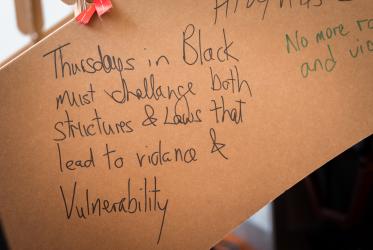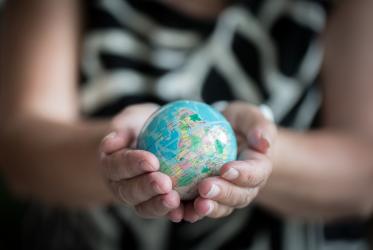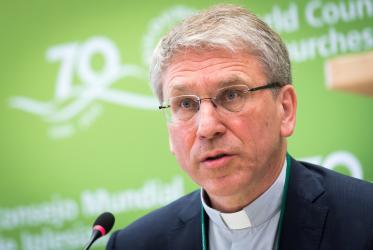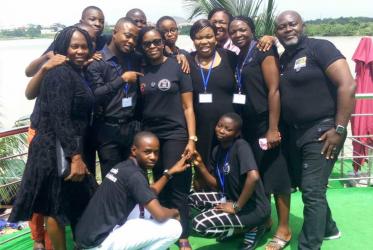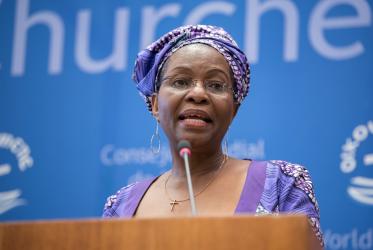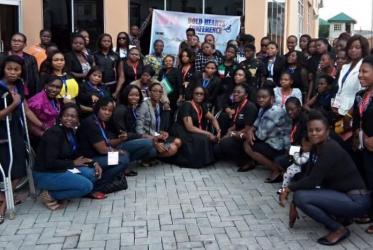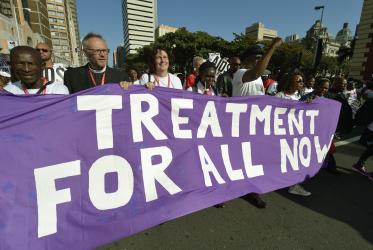Displaying 1 - 20 of 24
South Africans draw hope despite recurring challenges
16 December 2019
The cry of the Papuans in Indonesia
14 November 2019
Youth leaders: “We will stop at nothing” to end HIV and violence
17 October 2019
When you strike the women, you strike a rock
18 September 2019
Doing his best without being the best
07 September 2018
Tveit in DRC: “Making peace is holy work”
19 August 2018
WCC “Pilgrim Team” to visit South Sudan
30 April 2018
Determined to make a difference
18 April 2018
Walking together against hatred and violence
26 February 2018
AIDS 2016: Coverage of faith response to HIV
22 July 2016
Children are being let down over HIV care
17 July 2016





